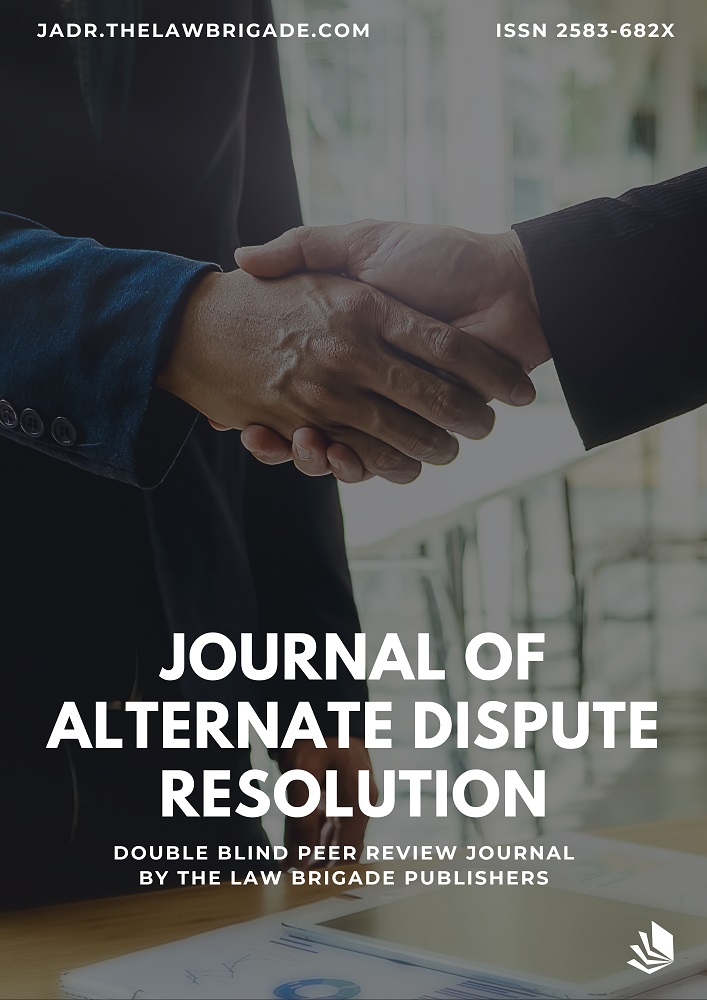Globalisation has created closer connections among nations. It has enabled cross-border agreements, allowing individuals from various countries to engage in commercial and non-commercial activities. Disputes between the parties in such situations are not uncommon. International Arbitration offers a straightforward, cost-effective, and efficient avenue for resolving conflicts between parties of different nationalities. This process involves selecting a neutral individual, known as the arbitrator, to resolve the disagreement according to the procedures agreed upon by the parties outside the jurisdiction of domestic courts. International arbitration offers a more impartial setting compared to local courts that adhere to the laws of a specific nation. Conversely, Arbitration Tribunals are private entities that do not comply with the laws of any particular country and can effectively handle disputes stemming from international transactions. Third-party funding refers to a practice where an outside party covers the legal costs of one disputing party in exchange for a contingent portion of any financial award received, depending on a favourable result. Although this practice is common in various regions, it is still relatively unexplored in the context of international arbitration in India. The lack of a thorough regulatory framework has created significant anxiety and reluctance to engage in such funding, making arbitration an increasingly inaccessible form of dispute resolution for many, mainly due to its perception of high costs. This paper promotes the acceptance of third-party funding in arbitration in India. It seeks to reconcile the differing viewpoints regarding the need for and extent of mandatory disclosure of such financing to establish a balanced approach that upholds the interests and rights of all parties involved. It argues for and demonstrates the need for a clear framework that requires the disclosure of such funding while offering several provisions to respect the third-party funder’s wish to remain anonymous behind the ‘funding veil.’ Additionally, it assesses this proposed framework in light of the recent confidentiality regulations introduced in India under the Arbitration and Conciliation (Amendment) Act, 2019 to create a practical regulatory structure by comparing it to various international practices, thereby promoting the growth of third-party funding in India in line with the country’s goal to become a leading hub for international arbitration. Third-party funding is officially acknowledged in civil lawsuits according to the Civil Code of Procedure in states like Maharashtra, Gujarat, Madhya Pradesh, and Uttar Pradesh. This acknowledgement of third-party funding can be inferred from the Civil Procedure Code 1908, which regulates civil court processes in India. Amended by Maharashtra, Gujarat, Madhya Pradesh, and Uttar Pradesh, Order XXV Rule 1 of this code allows courts to secure litigation costs by requiring the financier to join the case and deposit the expenses with the court.
Third-Party Funding in International Arbitration
Publication Information
Journal Title: Journal of Alternate Dispute Resolution
Author(s): Astha Kothari & Arryan Mohanty
Published On: 15/10/2024
Volume: 3
First Page: 1
Last Page: 32
ISSN: 2583-682X
Publisher: The Law Brigade Publisher
DOI: 10.55662/JADR.2024.3401
Cite this Article
Astha Kothari & Arryan Mohanty, Third-Party Funding in International Arbitration, Volume 3 Issue 4, Journal of Alternate Dispute Resolution, pp 1-32, Published on 15/10/2024, 10.55662/JADR.2024.3401 Available at https://jadr.thelawbrigade.com/article/third-party-funding-in-international-arbitration/
Abstract
Keywords: International Arbitration, Third-party funding, Arbitration Tribunals, Arbitration and Conciliation (Amendment) Act, 2019
Share this research
Latest Publications
October 15, 2024
February 19, 2024

Submissions Open!
Authors are invited to submit their research paper in the journal. Please click the Submit Button below to proceed.
Notice




